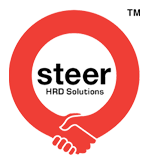The Pros of Planned Delegation

Have you caught yourself saying “ I want this done, I don’t care how you do it”?
Do you think saying so creates an environment of productivity or hostility?
The worst thing a leader can do is pile work on their team without planning out their day.
You might feel great that you are extracting more in terms of hours per day; butt little do you know that this is compensated in time of distraction, inaction, sick days, emergency at home days, ans so on.
In short, this is not hustle, this is running to reach nowhere.
The more structure you build in the work day, the more productivity you will get. Here are a few tips that can help you delegate better.
The 3 BIG DO’S
- Plan Ahea: Executives are not planners – they are doers. You are the planner. Over time, executives learn to plan themselves, but that should not be expected from the minute ‘Go’.
As the leader, you must have an annual plan. Break this into plans for each quarter, each month, each week, and each day.
It is understandable that a manager or business owner might not have full clarity, but you can atleast bring in some clarity to the table: If not annual, you can chalk out a monthly plan.
Planning for even a shorter time span is better that allocating work on the go.
Skip planning for the next day or you will land up in an “I wanted it yesterday” - Take a day plan: A day plan is an excellent tool to delegate and help an employee plan their day. It gives you visibility of how much is on the person’s plate. You can make additions if there is scope. It also prepares you to keep time in your day in case a team member might need your support with any of their tasks.
Take the day plan at the start of the day.
Keep the format simple, just a few pointers quicky sent to you (even on your chat app for work communication) is good enough.
Take it as the report at end of day as this will not aid in planning. - Give feedback on the day plan:
When you look at a day plan, think how it can be executed best.
Giive useful inputs on the tasks that could helo your employee learn.
Highlight any priorities – like which task they should take this up first or on which task should they spend maximum.
We would recommend you go a step further and do a quick mood check. Such small gestures go a long way in keeping people productive – it helps if they are feeling low and/or overwhelmed.
The 2 BIG DON’TS
- Seek updates several times a day: It may appear that taking frequent updates will create a sense of urgency. But what this also does is stresses a person. Sometimes, people “shut down” when too stressed.
Many managers complain of no response by team members to their calls and messages. This is because they have, unknowingly, cut their connection with the team by stressing them out.
The best strategy is to inform your employees that you are around if they need and then to leave them alone. Over some time, you would have evaluated how much follow-up is needed for each team member. Tailoring follow-up for each person will yield better outcomes. - Schedule meetings at close of or post working hours: This is a big No-No and reflects very poorly on your planning skills. Your teams need not show their commitment by being available at anytime, When you respect their time, people feel more responsible towards completing their tasks in a timely manner.

